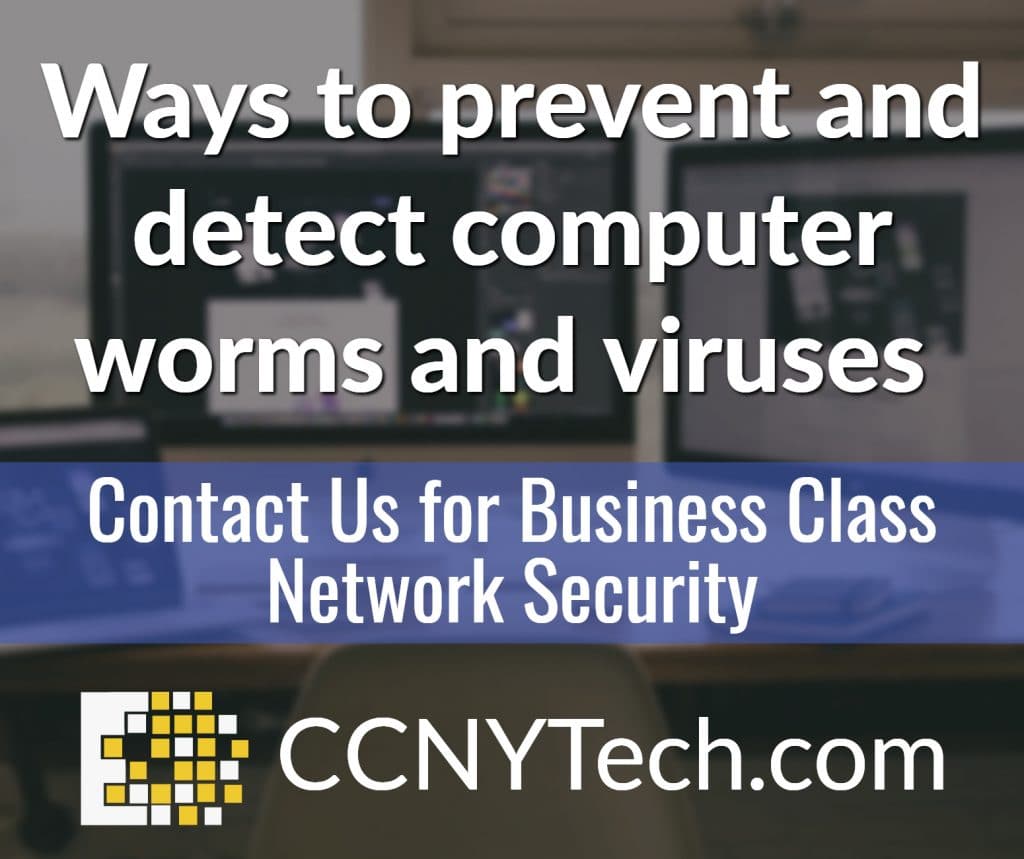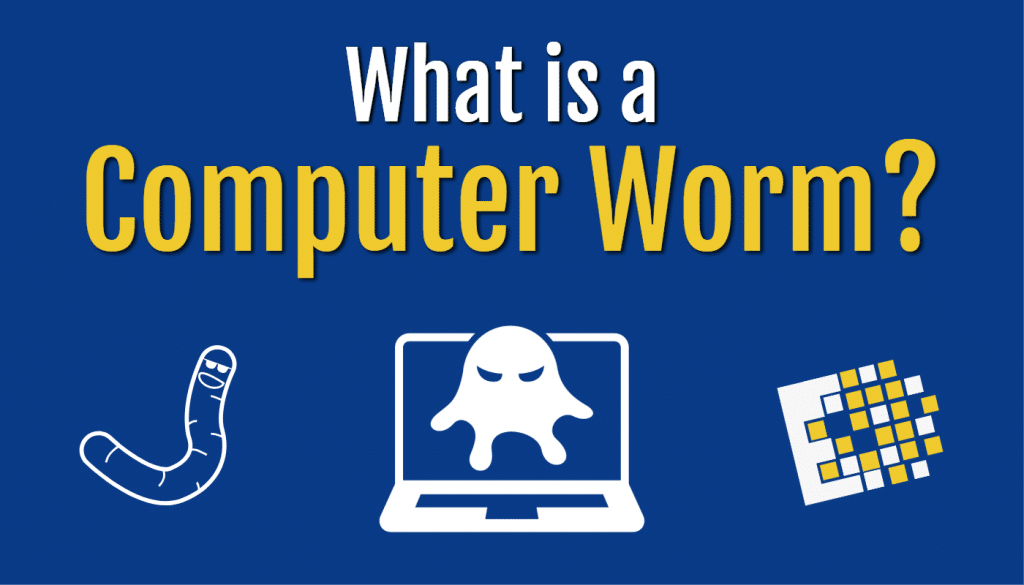Although ransomware attacks have been the hot topic of cyber news lately, computer worms are still a common form of attack on individual and company computers. A computer worm is a malicious software program which can infect computers and self-replicate to spread, while remaining active on infected systems.
How it works
 Computer worm are a form of malware which runs invisibly in the background, overtaking parts of an operating system. They are generally only recognized when systems are slowed down and resources are consumed.
Computer worm are a form of malware which runs invisibly in the background, overtaking parts of an operating system. They are generally only recognized when systems are slowed down and resources are consumed.
These attacks are especially effective, as they can spread without user interaction. Once a computer won is active on an infected system, they are able to spread throughout a network. In the past, computer worms used to attack through infected storage media; while USB drives are still a common vector for worms, it is not essential.
Computer worms are effective through vulnerabilities in networking protocols. Emails are a common gateway for these worms to spread, as they can create and send outbound messages to all addresses in a user’s contact list.
The main differentiation between computer worms and viruses is that a worm is a self-replicating program that spreads without user interaction. Viruses, on the other hand, generally require some action on the part of a user to spread (although they are also self-replicating).
Related Video: 5 of the worst computer worms ever:
Defense against computer worms
There are many ways to prevent and detect computer worms and viruses. It’s important to be proactive with cyber security and IT maintenance. Here are a few key steps to keeping your network clean:
- Updates – continuously updating operating systems and software will ensure that you have the latest security patches.
- Caution – It is crucial to be up-to-date with threats, to be careful with links in emails, avoid pop-ups and other suspicious attachments. These are all means for the spread of malicious software.
- Firewalls – firewall and antivirus software can help to reduce system access and prevent cyber attacks from running in the background.
 Detection – What to look for:
Detection – What to look for:
- Decreased system performance
- Freezing or crashing
- Unusual sounds or messages
- Unfamiliar icons or files
- Warning messages for operating system or other software
- Email messages sent without user interaction
Computer worms can be difficult to detect and remove. It is important to use best practices for network security in homes and workplaces. It is especially important for businesses to train employees about security awareness.
 Computer worms, viruses, and ransomware are all real concerns for enterprise networks. It is important for businesses to consult IT professionals about cyber security. At CCNY Tech, our team of IT experts will perform full network evaluations, finding and correcting your security weak points and ensuring that all preventative measure are in place. To learn more, visit our website or call us at 315.292.1046.
Computer worms, viruses, and ransomware are all real concerns for enterprise networks. It is important for businesses to consult IT professionals about cyber security. At CCNY Tech, our team of IT experts will perform full network evaluations, finding and correcting your security weak points and ensuring that all preventative measure are in place. To learn more, visit our website or call us at 315.292.1046.
